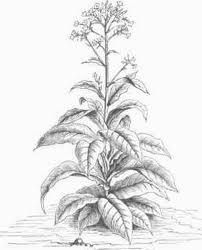 Tobacco is a plant of the nightshade family. The term is applied also to the cured and processed leaves of certain varieties of the plant, which are used in the manufacture of cigarettes, cigars, pipe tobacco, chewing tobacco, and snuff. Nicotine, an alkaloid contained in tobacco, is used for medical purposes and as an insecticide. Tobacco is one of the most important commodities in world trade, and is of major importance in the economy of the United States.
Tobacco is a plant of the nightshade family. The term is applied also to the cured and processed leaves of certain varieties of the plant, which are used in the manufacture of cigarettes, cigars, pipe tobacco, chewing tobacco, and snuff. Nicotine, an alkaloid contained in tobacco, is used for medical purposes and as an insecticide. Tobacco is one of the most important commodities in world trade, and is of major importance in the economy of the United States.
China is by far the world’s leading tobacco producer, with the United States ranking second. Most of the United States crop is produced in North Carolina and Kentucky. The United States exports about half of its production. It also imports large quantities, especially Turkish, or Oriental, tobacco, from Turkey, Bulgaria, Yugoslavia, and Greece.
The tobacco plant is often called by its genus name, Nicotiana. There are about 60 species, most of them native to tropical America. Some are used for ornamental purposes. Only two speciesN. rustica and N. tabacumare used in commerce. N. rustica, or wild tobacco, is grown commercially only in a few parts of Europe and Asia.
N. tabacum, often called simply tobacco, is the most important species. It has been adapted to cultivation in subtropical and temperate climates in many parts of the world. The plant is an annual, up to 10 feet (3 m) high. The leaves are large and oval, with rounded or pointed ends. Leaves and stems are covered with hairs, some of which exude a sticky fluid. The most commonly cultivated varieties have leaves that vary in length from 20 to 24 inches (50 to 60 cm) and are about half as wide as they are long. The tube-shaped flowers are greenish-cream to pink or red. The seeds are very small, and one plant usually produces 200,000 or more.
About 100 varieties of tobacco have been developed. Varieties generally are identified according to the way they are cured, for example, air-cured and flue-cured tobacco. Some are sometimes named for their place of origin (such as Oriental) or for their, ultimate purpose (such as cigar wrappers).
